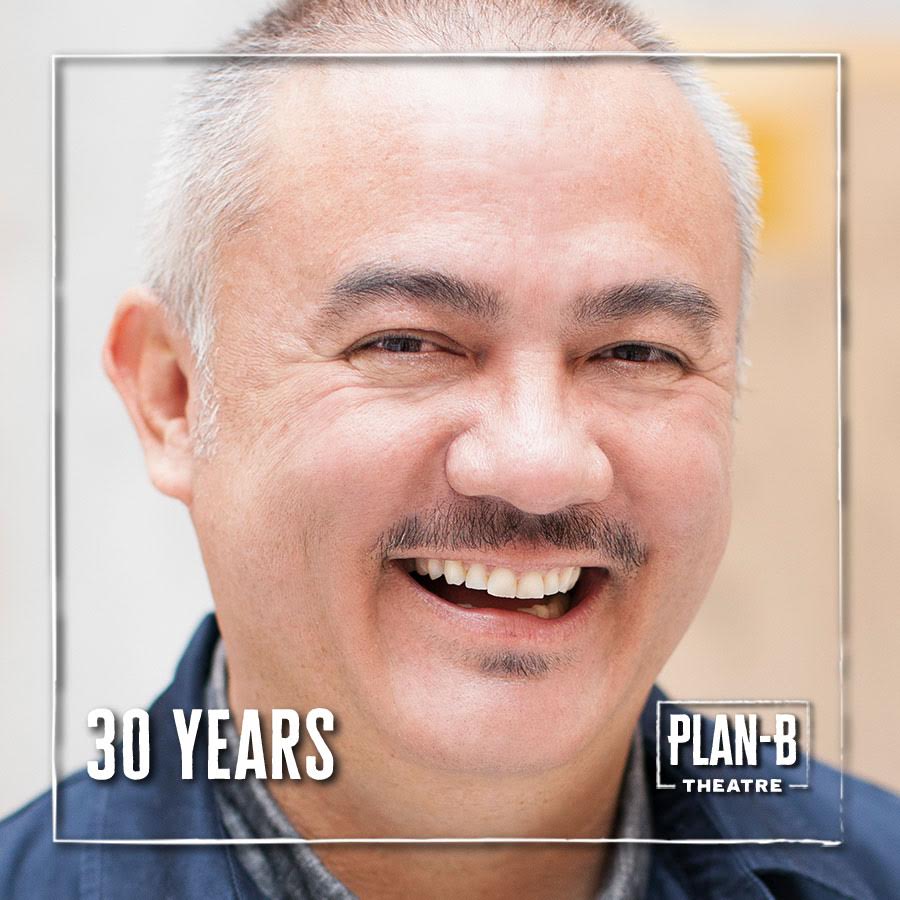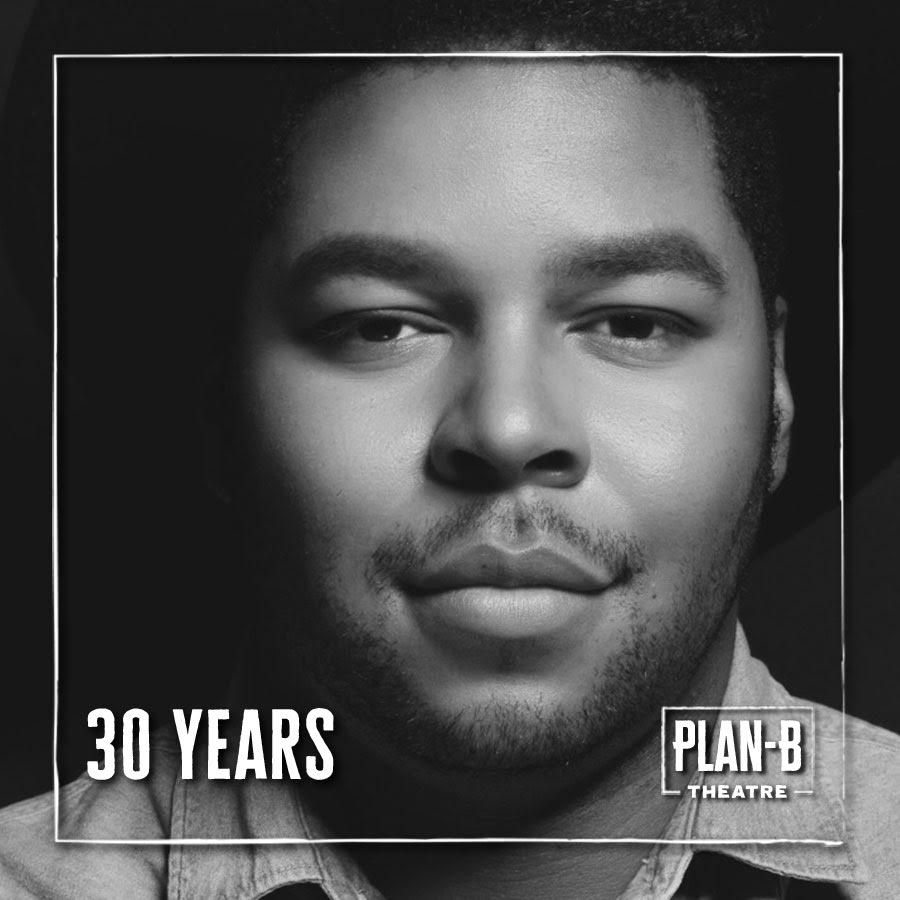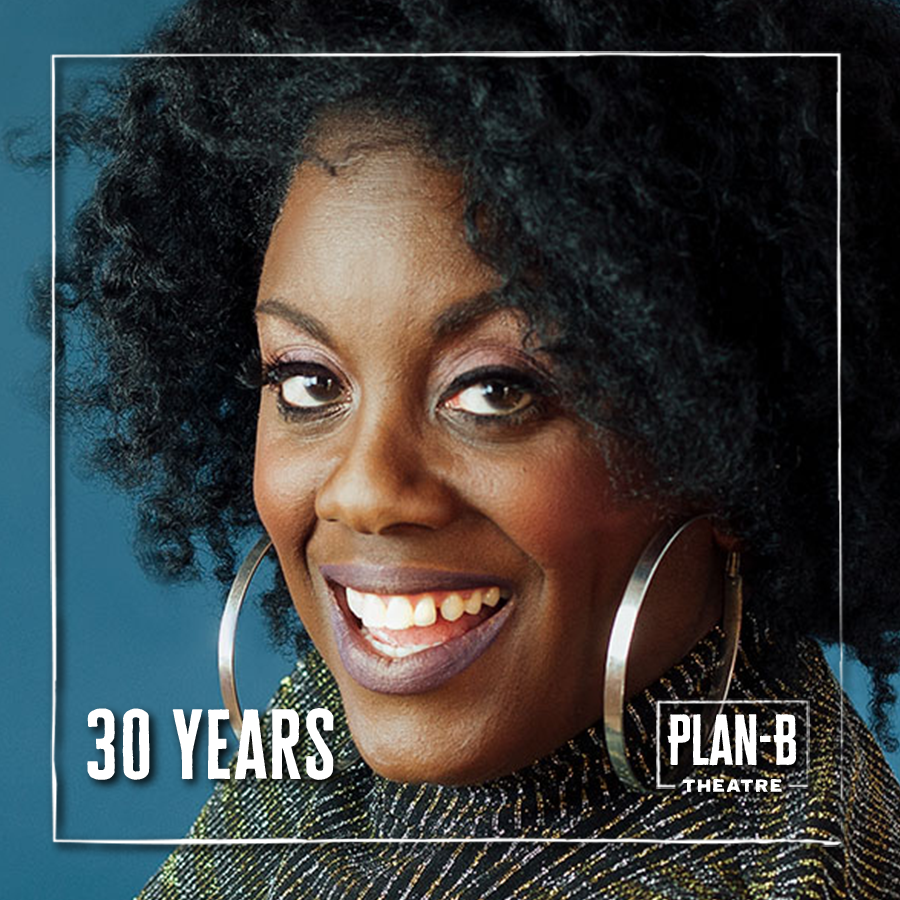In the final show — a quartet of short plays — to close out its 30th anniversary season which has featured audio productions, Plan-B Theatre highlights two strengths that emphasize the small company’s leadership in producing original work with incisive timeliness and relevance.
From playwrights in Plan-B’s Theatre Artists of Color Writing Workshop come four short plays which will receive their world premiere in Local Color, an hour-long production that will be available for 10 days from June 3-13. The four plays land at various points along the spectrum of comedy with mature perspectives (which would rate an R as a movie or TV-MA as a televised offering): Suicide Box by Tatiana Christian, Guise by Chris Curlett, DoLs by Dee-Dee Darby-Duffin and Organic by Tito Livas.
If 2019’s production of …Of Color is a gauge, then listeners will see the results of four playwrights ripping the restraints off in creative expression. As The Utah Review noted at the time, “… Of Color, a quartet of short plays by four Utah playwrights of color making their debuts, demolishes those restraints in a production that rightly shocks the senses, rattles and invigorates the mind and resonates in complex commemorations, crises and celebrations of culture, spiritualism and racially authentic language.”
Since its inception four years ago, the workshop has been integrated into Plan-B’s creative life. “The Theatre Artists of Color Writing Workshop has been blessed since the moment of its inception. Truly,” says Jerry Rapier, in an email interview with The Utah Review. “That’s not marketing spin: I really feel that way. I made some pretty impulsive promises in 2017 and the universe has provided (along with some pretty amazing donors). I am intensely proud of and humbled by the work that has been created in the workshop since then.” Plan-B also participates in the National New Play Network’s Bridge Program, which has connected 18 projects by artists of color across the country this season.
In the near future, two workshop members will conduct a year-long, K-6 playwriting residency at the Open Classroom in the forthcoming school year. One playwright will have their first full-length play produced as part of Plan-B’s subscription series, while another will see their work included in the upcoming season’s Script-In-Hand Series. There also are commissions to create a new episode for the company’s long-running Radio Hour Series for the 2022-23 season and a play for the Free Elementary School Tour (FEST) program in 2023-24. Rapier adds that two others are working on their first full-length plays, to be workshopped in the 2021/22 quarterly meetings.
No doubt that Plan-B has demonstrated persuasively that an artistic mission of inclusion, diversity, equity and access for any performing arts organizations can and should move beyond promises and words. Notable is that Local Color will be part of the celebration for Utah’s 125th anniversary of statehood, which Rapier adds includes funding that ensures the company will end its fiscal year with a balanced budget — a significant accomplishment at a time when the pandemic had upended so many performing arts schedules. “One of my goals with the Theatre Artists of Color Writing Workshop is to reflect our community as it is, not as it has been,” Rapier explains. “Thrive 125 is a good fit for that. There’s a lot of looking back, but also quite a bit of looking forward. That’s where we fit. It’s our biggest local platform yet for centering local voices of color. And I have to say, Local Color is definitely the most adult of all Thrive 125 offerings. And it has never been cause for concern. Which itself is progress.”
As The Utah Review noted in its reviews of P. G. Anon and Art & Class, Plan-B superseded expectations of audio productions, particularly when all of the recording was done not in a studio but in each actor’s home, as part of following social distance measures. Rapier credits musician and sound engineer David Evanoff with mastering the productions with excellent quality for listeners. “Everyone involved was nervous with a capital N. There was a lot of re-thinking and re-writing. We all mourned the onstage ‘could-have-beens’ and then threw ourselves into the unique possibilities of audio drama,” Rapier explains. “Without exception, each playwright and actor was unsure but embraced the shift with gusto and a helluva lot of trust, and you can hear that in each play and performance.”
With the expertise finessed to satisfying results, even as restrictions have eased significantly, Plan-B will offer in-person, video streaming and audio streaming options for the upcoming FEST tour of a new play for children, along with offering video streaming options for the 31st season’s subscription series.
Local Color will be available for streaming as a podcast on the Plan-B website as well as on its free app. Listeners will be able to access the production within the specified run dates. Tickets for individual productions are available on a pay-what-you-can basis: As a guide, the regular ticket price would be $22 and there are no additional fees. Plan-B will send donation letters to individuals who pay an amount larger than $22 per ticket. For more information, see the Plan-B website.
The Utah Review also asked each of the playwrights for Local Color to answer seven questions and profiles are featured below:
Tatiana Christian
Inspired by Futurama, Christian features in her play a device that resembles a phone booth, which the main character enters when he wakes up in the future and attempts to call his family. “But, instead of being able to dial anyone, all these knives come out trying to stab him,” Christian adds. “And it’s revealed that people use that box to commit suicide. So that was the initial idea, and it just kind of spiraled outward to include my experiences of working in a call center.”
Regarding her workshop experience, Christian says, “I think my greatest takeaway has been that lots of people write from their experiences, but also, people create totally unique and random plays that have nothing to do with their lived experiences.” The surprises are exhilarating, she says, adding, “It makes me feel really good that I don’t have to stay in a specific genre, that I can do anything I want.”
She recalls one of the workshop participants telling her how modern and contemporary Suicide Box was. “I hope I can make more work like that; something that feels pressing to our times maybe,” she says. “I don’t think I have a unique voice, as I am still learning about craft, and definitely feel like my playwriting needs loads of work – but hopefully as time passes, I will develop a stronger voice.”
For writers of color who aspire to expand their skills as a playwright, Christian recommends that writing and workshopping numerous pieces at a time is a good place to start, followed by networking with as many actors and others in the theatrical community. “Lots of places have theater festivals, maybe you can manage to produce your own play or find someone else who will,” she adds. “Go and see as many plays as possible to see what theater can do, and that might help you think more creatively about what kind of plays you would like to write.”
When asked about what advice she would offer to white writers who want to incorporate characters and experiences of people of color into their work to make them believable and realistic, Christian’s unequivocal response resonates with what the Plan-B program has sought to achieve. In sum, she says, “I would never help a white person do this. Ever. Pay Black people; hire Black people.” She explains her response in greater detail as well: “Black people have been here for 500 years, and if a white creative still hasn’t dealt with their racist ideas or meaningfully confronted white supremacy (in themself, others, or their work) – it really isn’t a valuable use of time to bother with that person. I don’t really see how it’s my responsibility to help that person navigate their prejudice.” She adds, “It’s better to avoid the whole question and simply pay BIPOC for our skills and insight.”
As for what she would like listeners to take away from her newest play? “Honestly, I just hope people like it and think it’s good. I know “good” is an empty value – what constitutes a good play? (Although, I have seen some RIVETING work),” Christian says. “I just don’t want to be thought of as a terrible writer. It is my first play, so maybe my aspirations should be lower, or at least less invested in how other people perceive my work. But really – I just want to be considered a great writer who has interesting ideas and can convey them well to an audience.” Going directly to the heart of her play, she adds, “that working is a scam and we should embrace a life free of work. Read Kathi Weeks [The Problem with Work: Feminism, Marxism, Antiwork Politics, and Postwork Imaginaries, Duke University Press, 2011]! Embrace anarcho-communism!”
Chris Curlett
For Guise, Curlett recalls the process for this play started with a workshop assignment when he was teamed with Dee-Dee Darby-Duffin [whose play DoLs is featured as well in the production] to be writing partners and to hold each accountable. “This process was essential for me to get something written down to present to the group,” Curlett explains. “The two main characters, Joey and Rick, changed a lot during this process. They started as basic college guys and developed into a message regarding mental health, masculinity, and the psychological effects of ignorance and racism.”
He adds the most important takeaway from the workshop “for me, is that I am capable of telling stories that represent who I am and challenge the tropes that have been perpetuated through theater history.” The experience also gave Curlett the confidence of knowing his “experiences and point-of-view are rich places to start when storytelling and developing my voice as a writer/playwright. Since I am new, trying to craft a play on some topic I am not well-versed in, just for the sake of writing, will not be as powerful as writing from what I know or observe. Eventually, I will get to a point where I can venture out into unknown areas to craft a story.”
As for inspirations for becoming a writer, Curlett looks to a “”handful of seasoned writers” locally and cites Rapier’s efforts in having “an open conversation with local BIPOC artists to discuss needs/issues in the community and followed through with the needs we presented. That is the work that needs to be done across the nation and globe.” As for advising young writers of color, he acknowledges the process challenges involved but also casts aside fears: “Just write. No matter how ridiculous or scary it feels to create a play – just write. It feels exhilarating to see the page numbers grow as you type and have a draft to show to others. The technical elements will tighten up as you go along.”
When asked about what advice he would offer to white writers who want to incorporate characters and experiences of people of color into their work to make them believable and realistic, Curlett recommends talking to sources “honestly and humbly,” adding that writers should “steer away” from “continuously creating stories of people of color in destitute situations to be rescued by a White Savior. Objectives to strive for? Be willing to challenge your view/beliefs/bias/ignorance to social, economic, political, and mental experiences of people of color. Pop culture should not be your main reference to our experiences. Also, as you continue your journey, diversify your circle and who you associate with.”
As for what he would like listeners to take away from his newest play? “Being an ally is to be willing to break the status quo. Step up for people of color. Take real action steps,” he explains. “Second, men are human and there is suffering on this side of the discussion, especially for men of color. Healing will come from having healthy connections between men, holding each other accountable, and challenging antiquated ideals of what it means to be a man.”
Dee-Dee Darby-Duffin
For the process of creating DoLs, Darby-Duffin explains, “I tell lots of stories about my childhood. Some of them are entertaining and stick with me. Someone said to me start by writing what you know so I drew on my own young adult experience. This particular story rose to the top. The biggest change is the liberty I took to embellish and add pieces of other stories.” Julie Jensen, the most produced Utah playwright locally and nationally, guided workshop participants through the process of developing the writer’s craft. Darby-Duffin recalls what Jensen told her “after hearing me whine,” adding Jensen stated in her characteristically direct manner, “Stop thinking about it; just write a damn story. You tell all these great stories; NOW WRITE THEM!”
She says one of the most important moments of inspiration for her came through the Salt Lake Acting Company (SLAC) production of Chisa Hutchinson’s Surely Goodness and Mercy in 2017, a play in which Darby-Duffin worked as an assistant director. “She came to Utah and I volunteered to take her back to her hotel,” she recalls. “She was very frank with me about being a woman of color in this industry. Her thrive in this industry is what I look up to most.”
As for advising young writers of color, she reiterates a point her colleagues have made as well: “That the stories they want to see and hear will not be written unless they write them.” When asked about what advice she would offer to white writers who want to incorporate characters and experiences of people of color into their work to make them believable and realistic, Darby-Duffin explains, “Question your thought process a hundred times. Do the work it takes to develop authentic, believable characters that are relatable. Not magic characters, not saviors, just relatable.”
As for what she would anticipate listeners taking away from DoLs, she says, “I hope people can see themselves in those two smart, quirky, nerdy young adults and give their adult selves some grace.”
Tito Livas
Livas says writing Organic was easy. “I didn’t have to think of a concept,” he explains. “I just had to remember what happened and amp it up a bit. And the only major changes that were made were ones to make it more accessible as an audio play. I had to add more dialogue to clear things up that weren’t being seen.”
He says the most important takeaway from the workshop was “that despite what I’ve felt, regardless of what may have been impressed upon me, I do, in fact, have a voice and stories and experiences that should be told and deserve to be told.” Livas adds that he considers all feedback useful: “Whether it supports what you’re trying to do or negates it. When you’re new to playwriting all the feedback you receive guides your way and lets you know where you need to focus.”
Livas’ most prominent inspirations for becoming a playwright are life experiences and not just his own. “Organic is based on a personal, lived experience, one that stayed with me,” he explains. “For my other pieces, they’re experiences that I’ve heard about second hand, or have witnessed, but haven’t necessarily lived.”
As for advising young writers of color, he cites first, “How to fill out a W2.” He offers his endorsement on a point raised by the three other playwrights featured in this production. “But beyond that, in terms of writing, they should know that there are people out there who are waiting to hear what they have yet to write, and we are so eager to listen and/or watch. So write!,” he adds. When asked about what advice he would offer to white writers who want to incorporate characters and experiences of people of color into their work to make them believable and realistic, he states succinctly, “The only advice I have for white writers in that scenario is…ask. Ask a person of color, ask several, and don’t assume all of our experiences are the same.”
As for what he would anticipate listeners taking away from Organic, he says, “To stop and think before you act, which is what I tell my five-year-old all the time. And that your experience and understanding of something is not everybody’s, so check yourself.”






